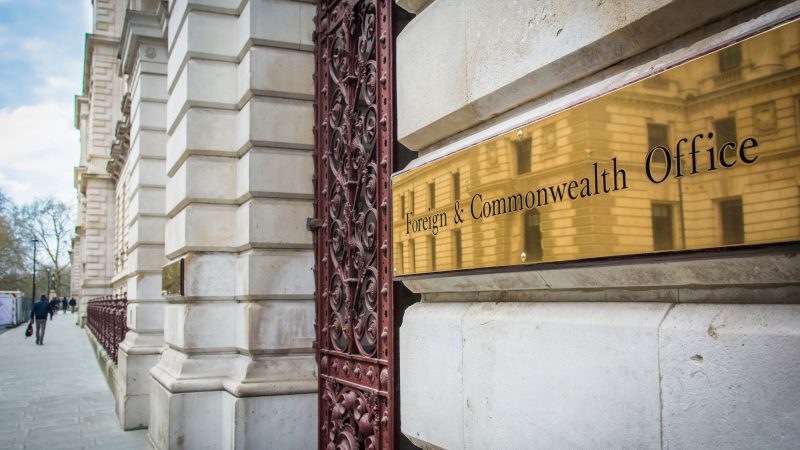
In under two weeks, world leaders will meet in Glasgow for the latest attempt to address the global climate crisis. The COP26 meeting puts the UK firmly back in the global spotlight, at a time when we have been facing a fuel crisis, severe shortages of labour and the threat of having Christmas cancelled for a second year in a row – albeit this time due to a lack of toys.
The global climate and supply chain crises highlight our interconnectivity, and by extension the importance of a robust and well-evidenced foreign policy approach. Events and decisions taken overseas have the potential to affect everyone, directly and indirectly, and how we engage with them can amplify or minimise the impacts.
It is in this context that the Labour Foreign Policy Group asked members to share their views on the UK’s foreign policy priorities. We received more than 750 responses from across the country. While this is a small proportion of Labour members, and admittedly respondents are a self-selecting group likely made up of foreign policy enthusiasts, there are three findings worth highlighting given the global context in which we find ourselves.
Firstly, climate change emerged as the predominate area of concern. 88% of respondents indicated that climate change was the greatest threat facing the UK, far above the rise of populism, the break-up of the UK, cyberattacks and future pandemics. Similarly, 78% of respondents indicated that tackling climate change should be a guiding principle of Labour’s foreign policy over and above other aims like promoting democratic norms and the security and prosperity of the UK.
This is perhaps unsurprising, given its prominence on the agenda of global leaders, but it indicates that climate change is no longer an issue we can address in parallel. Climate change presents an opportunity to link domestic and foreign policy, given the clear impact it is having now and will have in the long-term. This could include policies to promote investment in green tech, clean energy and wider climate action – for the benefit of the UK and at-risk countries overseas.
Secondly, the UK’s relationship with the EU is a live and unresolved issue that is unlikely to leave the stage any time soon. 69% of respondents indicated that rejoining the EU or the customs union should be a policy priority for Labour. While this has been a bête noir for the Labour Party, a recent British Foreign Policy Group survey indicated a softening of the wider view towards the EU and a clear desire for a closer relationship with the EU. Labour can take heart from this and the emerging space for debate. It is likely this trend will continue as the consequences of the government’s Brexit deal continue to bite, and people like David Frost attempt to kibosh any sensible negotiations.
The passing of time will further ease the space for debate, providing an opportunities for Labour to distinguish itself from the government. Exactly what rejoining the EU would look like in practice now and its benefits to the UK are far from clear, so Labour must tread carefully. Nevertheless, the party should explore the range of options available to it, to promote a closer relationship with Europe and address the real challenges we face.
Finally, respondents indicated that they want Labour to pursue a fair, compassionate, internationalist, and progressive foreign policy. One that is respected both inside and outside of the UK. This is in direct contrast to how respondents view the UK’s current foreign policy approach: isolated, untrustworthy and weak.
A major challenge for Labour is that very few respondents expressed pride in the UK’s historic and current approach to foreign policy, with 70% of respondents indicating they were not proud of the UK’s foreign policy. While this is likely to be a higher proportion than amongst the general public, it signals the Everest that Labour faces in formulating and communicating a foreign policy approach of which members and the wider public can be proud.
The survey highlighted areas of import for Labour members interested in foreign policy and provided direction on the focus of Labour’s foreign policy. Of course, there are areas where Labour members diverge significantly from the wider public, and of this the party needs to be aware. At LFPG, we hope that this survey is a first step towards engaging the wider labour movement in a debate about Labour’s foreign policy and the major decisions we as a party will have to make in the coming years.
Find the LFPG survey results in full here. LFPG is also one year old: read about our achievements to date here.




More from LabourList
‘The High Court judgment brings more uncertainty for the trans community’
‘There are good and bad businesses. Labour needs to be able to explain the difference’
‘This ruling should now remove any remaining barrier to approval of EHRC code’